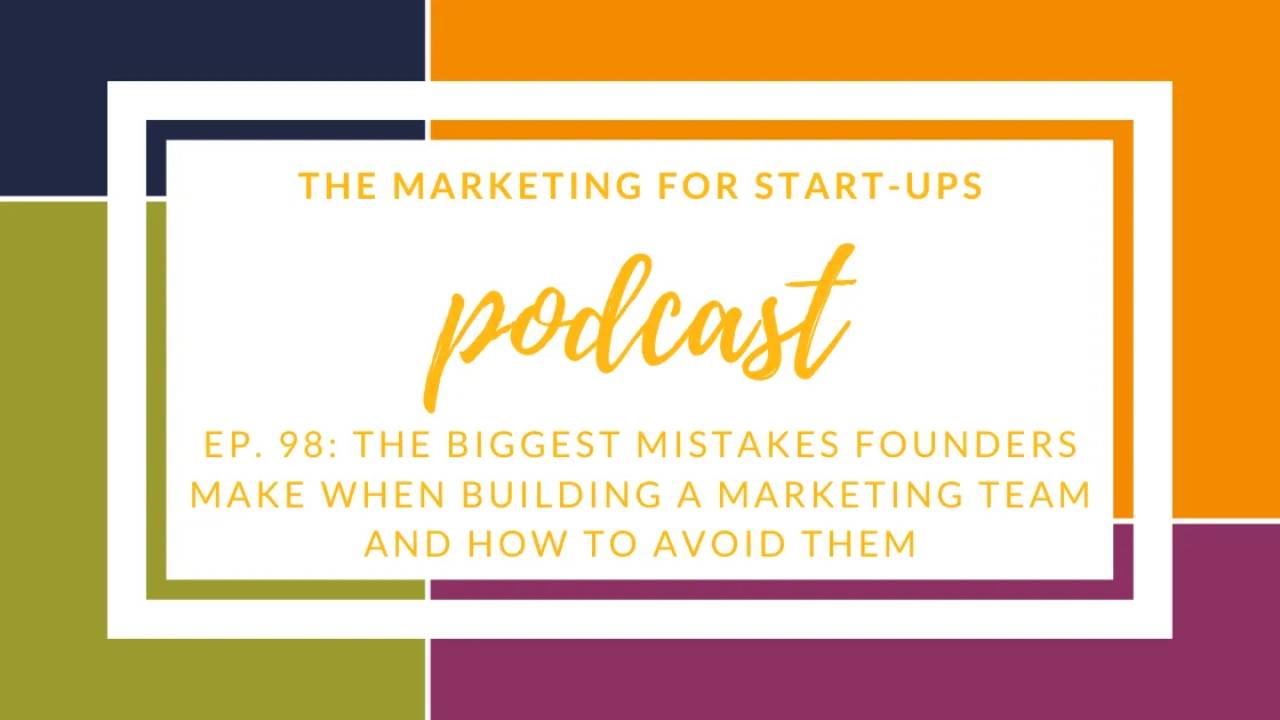The Biggest Mistakes Founders Make when Building a Marketing Team and How to Avoid Them
Oct 19, 2022
One of the biggest mistakes I see founders making with their marketing teams is assuming that your individual contributors may not have the tools to build and execute a full marketing strategy.
Understanding how to create and manage a full-funnel marketing program is a skill set that often more experienced marketing directors and CMOs have. But when we are just starting out and can't afford to have that position on our team, we refer to our lower-level managers and executors and expect that they have the knowledge and experience to create a full marketing program for the business. Unfortunately, operating in this way could waste you a lot of time and money.
You see, manager and assistant-level marketers are wonderful and executing in their areas of expertise. Your social media manager could be great at managing Instagram for your startup-- but that person might now have the experience to understand how to bring in new leads and convert them into sales. Or your ads manager could be great at bringing new leads in the door, but wouldn't know the first thing about nurturing leads and getting them ready to buy.
That is why it is so vital that you, as a founder, really understand how to build a marketing strategy and activate your team to execute it properly and effectively.
There are 3 Skills that all founders must acquire if you hope to build an effective marketing program for your startup.
-
Learn How to Create your Marketing Flywheel: There is a difference between strategy and tactics. Most people who aren't as familiar with marketing tend to focus more on tactics. This means a specific marketing activity like growing social media presence, creating email sequences, or running ads. Founders tend to get stuck hiring for the specific role to execute on one tactic without might insight into how that specific tactic plays a role in the bigger marketing strategy. That is why the best thing you can do for your business is to understand how to build your client value journey (CVJ). The CVJ is the 6-step process that brings people from first knowing about your business to buying and recommending your product/service. Actively managing a marketing department is simply staying connected to your CVJ and constantly working to improve on it. If you want to learn more about how I can help you create your Client Value Journey, check out Marketing Strategy School. New cohorts are launched each month!
-
Prioritize projects and set clear goals: After you've gotten clear on what your Client Value Journey is, you should share that with your team. Make sure they understand every stage in the journey and how the piece they are playing in your startup contributes to the "greater good" of the marketing flywheel. Then, go through the process of prioritizing projects that help fill in the gaps to what might be missing in your CVJ. For example, if you don't have an "aware" strategy (or lead generation), then plan to launch ads or a partnership program. Then create a goal to get that done this quarter. It is also important for your team to buy into the goal and help break down the goal into bite-size steps. Or, if a team member isn't directly contributing to a project, make sure they understand the action items they can take to help accomplish the business goals and set clear expectations on metrics they should be reaching.
-
Lead the team, keep them focused, and lend support/ resources as needed: Establish regular check-ins on the progress of the goal projects and KPIs. The only way to get performance from your team is to actively lead them. Meet with them on a weekly basis to discuss performance, roadblocks, and lead support and creative ideas.
The best advice I can offer is to treat all your teammates as if they were full employees. In other words, make them responsible for outcomes. Have them connect with the other contributors. Create a department. Even if you have fractional help, coworkers, or even interns. The more serious you take building the team and being clear and organized on your expectations, the better results you'll see from everyone working in your business.
Take a listen!👇🏻
Get more like this.
New ideas, motivation and inspiration delivered to your inbox.
We hate SPAM. We will never sell your information, for any reason.

